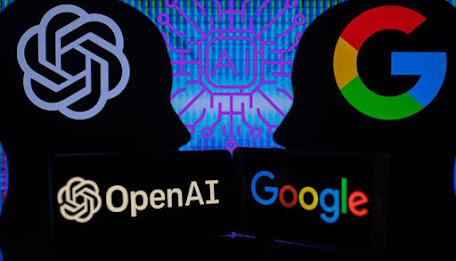Google vs. Goliath: OpenAI Unveils AI-Powered Search Engine
The world of search is about to get a whole lot smarter. OpenAI, the artificial intelligence research lab backed by Microsoft, is set to unveil its answer to Google Search – an AI-driven search engine promising a revolution in how we find information online. This move marks a significant escalation in the battle for search supremacy, potentially shaking the decades-long dominance of Google.
The Search Landscape: A Long-Standing King
For years, Google Search has reigned supreme, becoming synonymous with the act of searching the web. Its complex algorithms analyze billions of webpages, returning the most relevant results based on keywords and user intent. While Google has continuously refined its search engine, the core experience remains familiar – a text-based query box and a list of links.
The Rise of AI: A New Way to Search
OpenAI's challenger promises to disrupt this established format. By leveraging artificial intelligence, the new search engine aims to understand user queries on a deeper level, anticipating needs and providing more comprehensive answers. Here's how AI could transform search:
-
Understanding Context: Current search engines struggle with the nuances of human language. AI can analyze the context behind a search, considering factors like location, previous searches, and even user intent to deliver more relevant results. Imagine searching for "best pizza," and the AI-powered engine not just listing restaurants, but also considering the time of day, your dietary restrictions, and even past reviews you've liked.
-
Beyond Keywords: Keywords are the building blocks of traditional search, but they often fall short. AI can interpret natural language, allowing users to ask questions in a more conversational way. Imagine asking "How can I plan a weekend getaway to a place with great hiking trails?" instead of stringing together location and activity keywords.
-
Evolving Answers: Today's search engines return static results. With AI, search results could become more dynamic and personalized. The engine could learn from your past interactions and preferences, tailoring the results and even suggesting follow-up questions to refine your search.
OpenAI's Challenge: A David and Goliath Battle?
While OpenAI's approach sounds promising, Google remains a formidable opponent. Google Search boasts a massive index of webpages, a complex ranking system, and a user base accustomed to its interface. OpenAI will need to prove its AI-powered search engine can deliver superior results to attract users away from Google's established dominance.
Beyond Search: The Broader Implications
OpenAI's search engine is just one example of how AI is transforming technology. AI-powered tools are finding applications in various sectors, from healthcare and finance to customer service and content creation. The success of OpenAI's search engine could have a ripple effect, accelerating the adoption of AI across different industries.
The Future of Search: A Collaborative Landscape?
The competition between Google and OpenAI might not be a zero-sum game. Both companies' innovations could push the boundaries of search technology, ultimately benefiting users. We might see a future where both AI and traditional search methods work together, offering users a more nuanced and comprehensive search experience.
The Stakes are High: A New Era of Information Retrieval
The unveiling of OpenAI's search engine marks a pivotal moment in the evolution of search. As AI continues to develop, the way we access information online is poised for significant change. Whether OpenAI dethrones Google or not, the search landscape is undoubtedly heading towards a future driven by artificial intelligence. This shift promises a more intuitive, personalized, and potentially more powerful way to navigate the ever-expanding ocean of information on the web.
What do you think? Will AI-powered search engines become the new norm? Share your thoughts in the comments below!




.jpg)


.jpg)

No comments: